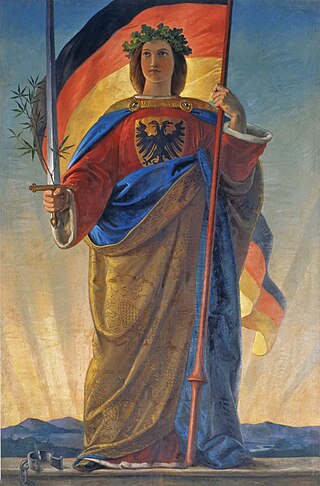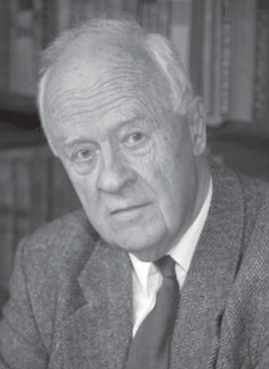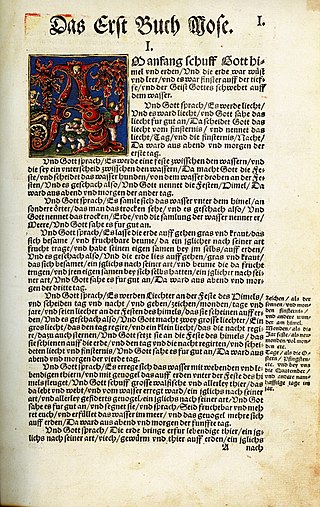Helen Watanabe-O'Kelly is an Irish Germanist and Founder of WiGS (Women in German Studies).
Helen Watanabe-O'Kelly is an Irish Germanist and Founder of WiGS (Women in German Studies).
Helen Watanabe-O'Kelly is Emeritus Fellow and Tutor in German at Exeter College, Oxford, and Professor of German Literature at Oxford University. She specialises in the early modern period, and is a distinguished scholar in this field, and in the field of German literature as a whole. She works in particular on European court culture in the early modern period and on German literature written by women or representing women; from 2005 to 2008 she co-directed the AHRC major research project at Oxford University entitled 'The Representation of Women and Death in German Literature, Art and Media, 1500–present'. She founded Women in German Studies (WiGS), the network for female Germanists of which she was the first president. [1] She has been the President of the Society for Court Studies since 2017. In 2019 she was elected as a member of the Academia Europaeana.
She took her BA and MA at the National University of Ireland (University College Cork), and her doctorate at the University of Basel. She taught at the University of Reading until 1989, whereupon she was elected to the German fellowship at Exeter College, Oxford, a post from which she retired in 2013. She then took up a post in the Faculty of Modern Languages as project leader on 'Marrying Cultures: Queens Consort and European Identities 1500-1800' (2013-16). This was funded by HERA (Humanities in the European Research Area). In 2007 she was the Mellon Distinguished Visiting Professor at the University of Illinois. She was elected a Fellow of the British Academy in 2012. She was proposed for AcademiaNet by the DFG German Research Foundation. [2] In 2016 she was a visiting professor at the Ludwig-Maximilians-Universität in Munich and on 1 December of the same year she was conferred with an honorary DLitt by the National University of Ireland. In 2018-19 she was a Fellow of the Institut d'Études Avancėes in Paris.[ citation needed ]
Her father was Professor Michael J. O'Kelly, professor of archaeology at University College, Cork, who discovered the midwinter illumination of Newgrange in 1967. [3]

Germania is the personification of the German nation or the Germans as a whole. Like many other national personification symbols, she appeared first during the Roman Era. During the Medieval era, she was usually portrayed as one of the lands or provinces ruled by the emperors of the Holy Roman Empire, and not as the most prominent but in a subordinate position to imperial power and other provinces. Around 1500, together with the birth of the Holy Roman Empire of the German Nation, Emperor Maximilian I and his humanists reinvented her as Mother of the Nation.
German studies, also often known as German philology, is the field of humanities that researches, documents and disseminates German language and literature in both its historic and present forms. Academic departments of German studies often include classes on German culture, German history, and German politics in addition to the language and literature component. Common German names for the field are Germanistik, Deutsche Philologie, and Deutsche Sprachwissenschaft und Literaturwissenschaft. In English, the terms Germanistics or Germanics are sometimes used, but the subject is more often referred to as German studies, German language and literature, or German philology.

Helen Vendler was an American academic, writer and literary critic. She was a professor of English language and history at Boston University, Cornell, Harvard, and other universities. Her academic focus was critical analysis of poetry and she studied poets from Shakespeare and George Herbert to modern poets such as Wallace Stevens and Seamus Heaney. Her technique was close reading, which she described as "reading from the point of view of a writer".
Sir John Huxtable Elliott was a British historian and Hispanist who was Regius Professor at the University of Oxford and honorary fellow of Oriel College, Oxford, and Trinity College, Cambridge. He published under the name J. H. Elliott.

Lyndal Anne Roper is a historian. She was born in Melbourne, Australia. She works on German history of the sixteenth to eighteenth centuries, and has written a biography of Martin Luther. Her research centres on gender and the Reformation, witchcraft, and visual culture. In 2011 she was appointed to Regius Chair of History at the University of Oxford, the first woman and first Australian to hold this position.
Irene Joan Thirsk, was a British economic and social historian, specialising in the history of agriculture. She was the leading British early modern agrarian historian of her era, as well as an important social and economic historian. Her work highlighted the regional differences in agricultural practices in England. She also had an interest in food history and local English history, in particular of Hadlow, Kent.

The Society for Court Studies is a learned society that aims to stimulate and co-ordinate the study of royal, princely, and noble courts throughout history. The principal object of the Society is to examine courts from a multi-disciplinary perspective by focusing on a variety of areas such as architectural history, political history, military history, art history, cultural patronage, and the role of women in courts. The Society for Court Studies publishes its own scholarly and peer-reviewed journal, The Court Historian, which appears twice a year. It is a registered charity.
Edna Longley, is an Irish literary critic and cultural commentator specialising in modern Irish and British poetry.

Michael Joseph "Brian" O'Kelly was an Irish archaeologist who led the excavation and restoration of Newgrange, a major Neolithic passage tomb in the Boyne Valley, County Meath, Ireland, now a UNESCO World Heritage Site.

Christian Weise, also known under the pseudonyms Siegmund Gleichviel, Orontes, Catharinus Civilis and Tarquinius Eatullus, was a German writer, dramatist, poet, pedagogue and librarian of the Baroque era. He produced a large number of dramatic works, noted for their social criticism and idiomatic style. In the 1670s he started a fashion for German "political novels". He has also been credited with the invention of the mathematical Euler diagram, though this is uncertain.

Catriona Helen Moncrieff Kelly, FBA is a British academic specialising in Russian culture. From 1996 to 2021, she was Professor of Russian at the University of Oxford and a Fellow of New College. In 2021, she was elected senior research fellow of Trinity College, Cambridge and honorary professor of the University of Cambridge.
Monica H. Green is an independent scholar who specializes in premodern and medieval plagues and medicine. She also has extensive research into medieval women and how gender affected Western healthcare. She was inspired to research women and gender's role in premodern healthcare after reading Christine de Pizan's "Book of the City of Ladies".

Dennis Howard Green was an English philologist who was Schröder Professor of German at the University of Cambridge. He specialized in Germanic philology, particularly the study of Medieval German literature, Germanic languages and Germanic antiquity. Green was considered one of the world's leading authorities in these subjects, on which he was the author of numerous influential works.

Helena Clara Deneke (1878–1973) was a British Germanist at Oxford University. She was an enthusiast for women's suffrage and for the Women's Institutes. She was "something of a legend in the Oxford of her day".

Harry White is an Irish musicologist and university professor. With specialisations in Irish musical and cultural history, the music of the Austrian baroque composer Johann Joseph Fux, and the development of Anglo-American musicology since 1945, he is one of the most widely published and influential academics in his areas of research. White is also a poet, with two published collections of poetry.
Helen Hills is a British art historian and academic. She was appointed Anniversary Reader of Art History at the University of York in 2005 and promoted to Professor of History of Art in 2008, making her the first woman professor of Art History there.

Early New High German literature refers to literature written in German between the middle of the 14th century and the middle of the 17th. The term Early Modern German literature is also used to cover all or part of the same period.
Faye Hammill FRSE is a professor in the University of Glasgow, specialising in North American and British modern writing in the first half of the twentieth century, what is often called 'middlebrow'. Her recent focus is ocean liners in literature. She is a Fellow of the Royal Society of Edinburgh (2021).
Carolin Duttlinger is a German academic and Germanist. She studied at the University of Freiburg and at the University of Cambridge, where she completed her doctorate in 2003. She is Professor of German Literature and Culture at the University of Oxford and a fellow and tutor of Wadham College. In 2016 and 2019-20 she was external senior fellow at the Freiburg Institute for Advanced Studies.
Helen Elizabeth Wilcox is a British literary scholar who specializes in Early Modern English literature. She is Professor of English Literature at Bangor University.